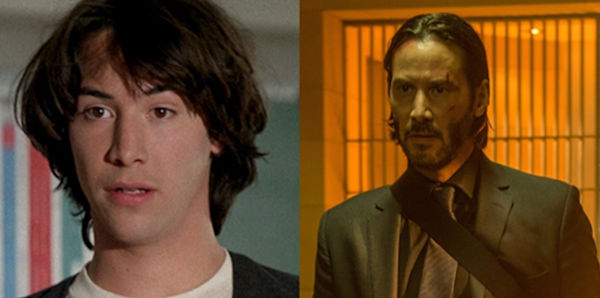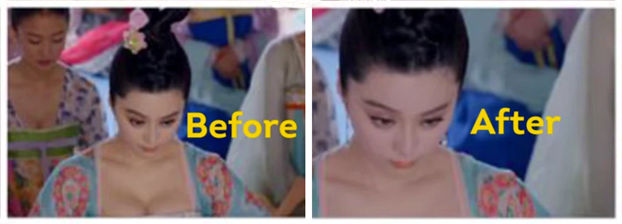“If Arya Stark were a mecha pilot.”
Xiran Jay Zhao’s debut YA science-fantasy, Iron Widow, is the first book I’ve read in a very long time that I didn’t want to end. It included so many fresh insights I just hung on to every word. While the publishers marketed it as Pacific Rim meets A Handmaid’s Tale, I would say it also has elements of The Hunger Games, Ender’s Game, Starship Troopers, Star Wars, and Bill and Ted’s Excellent Adventure.
Why Bill and Ted, besides marking Keanu Reeves before he became John Wick?
Zhao takes figures from Chinese history and sets them into a future where the alien Hundun have invaded, and only giant mechas can repel them. Famous strategists such as Zhuge Liang and Sima Yi from the Three Kingdoms era coexist with rebel An Lushan from the middle of the Tang Dynasty. It has cool touches like the first emperor of Qin having been gone for 221 years (Qin dynasty ended 221 BC).
Most importantly, the cast includes the founder of the Tang Dynasty, Li Shimin; and the main character, Wu Zetian, historically Li Shimin’s consort and only ruling empress in Chinese history. While the real Wu Zetian was reviled by male Confucian historians for centuries, more recent research has cast her in a more favorable light; and even state-run media recently produced a year-long television drama about her (though censors edited shots so Tang Dynasty hanfu revealed less cleavage).
Just like in history, Iron Widow’s Wu Zetian bucks against a patriarchal society. The mechas, made from the husks of the alien Hundun and called Chrysalises, can only be piloted with the cooperation of both a man and woman gifted with strong Qi—and women regularly die in the process.
When Zetian’s sister is murdered by a popular pilot, she undertakes a mission of vengeance; one that starts with signing up to become a pilot herself.
The story is told from a first person viewpoint, so the reader connects intimately to Zetian’s psyche. Her thought processes and insights drive the narrative, where the reader learns and unpacks buried truths about society as she does. Like Arya Stark, she mentally tough and introspective, doesn’t accept the roles relegated to women, and keeps a list of people who wronged her. Her resilience resembles Triss from Divergent, where she takes beating after beating, yet still gets back up.
As can be expected with many YA stories, there is a love triangle—though with a unique take. Zetian’s copilot, Li Shimin is a tough, convicted murderer, spared only because of his massive Qi makes him an ideal Chrysalis pilot. He’s a more textured and interesting character than the pretty boy Gayle; while her childhood friend is the loyal Peeta—albeit also the son of a media mogul, and an interesting character in his own right.
The comparisons to The Hunger Games do not end there. Chrysalis pilots gain fan bases like Tributes, and every battle with the Hunduns is broadcast to the general populace. There’s a shallow pageantry involved that hides cynical manipulation. As a master of social media herself, Zhao brilliantly weaves modern day themes of framing half-truths and lies as a narrative the masses will believe.
How Wu Zetian navigates her world kept me enthralled throughout the story. The prose drives the story with unique similes and metaphors that help keep the reader immersed in the setting. If I have one complaint, it’s that Zhao occasionally uses modern-day slang. Given that it’s a sci-fantasy story, it does fit; it just made me step out of the story at times.
Elements of Daoist cosmology are also well-represented; indeed, the very opening of the story reads a little like the opening credits to the Avatar series, listing the Chinese Five Elements instead of Avatar’s Greek four. Other nice touches include the Chrysalises being based on Chinese mythology, including the moon rabbit, the nine-tailed fox, and vermillion phoenix. Literature in the book includes plays on classic novels, such as Outlaws of the Hundun Wastes (Outlaws of the Marsh), Dream of the Red Watchtower (Dream of the Red Chamber), Romance of the Three Provinces (Romance of the Three Kingdoms), and Journey to the Western Stronghold (Journey to the West).
Overall, Iron Widow is a brilliant story, from its compelling characters to an emotionally manipulative and twisty plot, from its magnificent worldbuilding and deep themes. If not for me having read Leigh Bardugo’s Six of Crows duology—perhaps being my favorite fantasy of all time— his spring, Iron Widow would easily be my best read of 2021. That’s saying a lot, because the list for this year also includes, She Who Became the Sun and Paternus. I rate it a 9.98 out of 10 stars.




